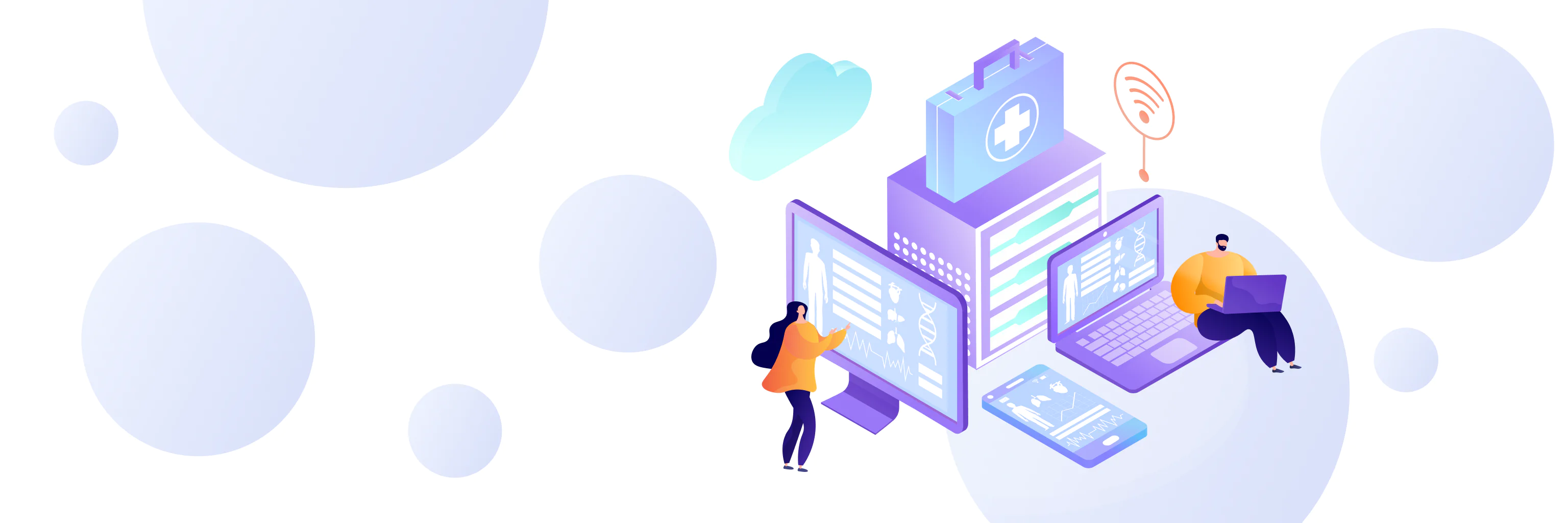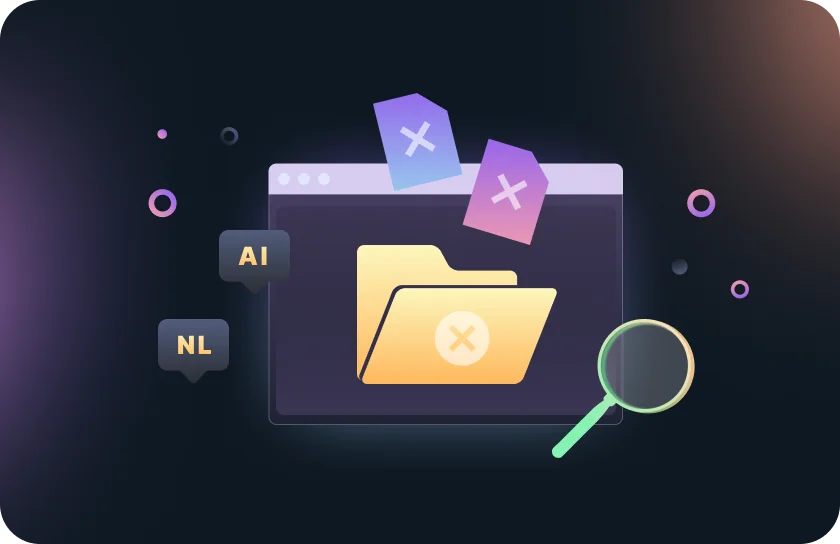Table of contents
The future of healthcare software development is bright, that’s for sure. Among all the horrors of the COVID pandemic, we’ve seen how the current healthcare system, even in highly developed countries, is far from perfect. In fact, it’s very far from being truly efficient. Moreover, we’ve seen that implementing technology in various healthcare processes can increase that efficiency. In the context of medicine, this means literally saving lives.
According to research published in the International Journal of Health Services, the most common problems highlighted by the pandemic crisis were:
- Access barriers
- Lack of control over prices and costs
- Unsatisfactory quality of services
- Widespread disparities and marginalization of public health
This research only covered the US. However, these issues are similar for all Western countries. Meanwhile, the situation in developing countries is much worse as people cannot access good healthcare services. It’s because such services do not exist at all or are too poorly developed. Furthermore, the level of digitalization in these parts of the world is also low. Therefore, few residents can make use of technologically-augmented medical services.
In light of this, custom medical software development is an industry that’s growing rapidly. With so many weaknesses exposed, businesses are competing to create solutions that will solve these problems. Meanwhile, other technological projects are also improving medical services in every area.
In this article, we’ll talk about the most remarkable ways of implementing tech in healthcare today.
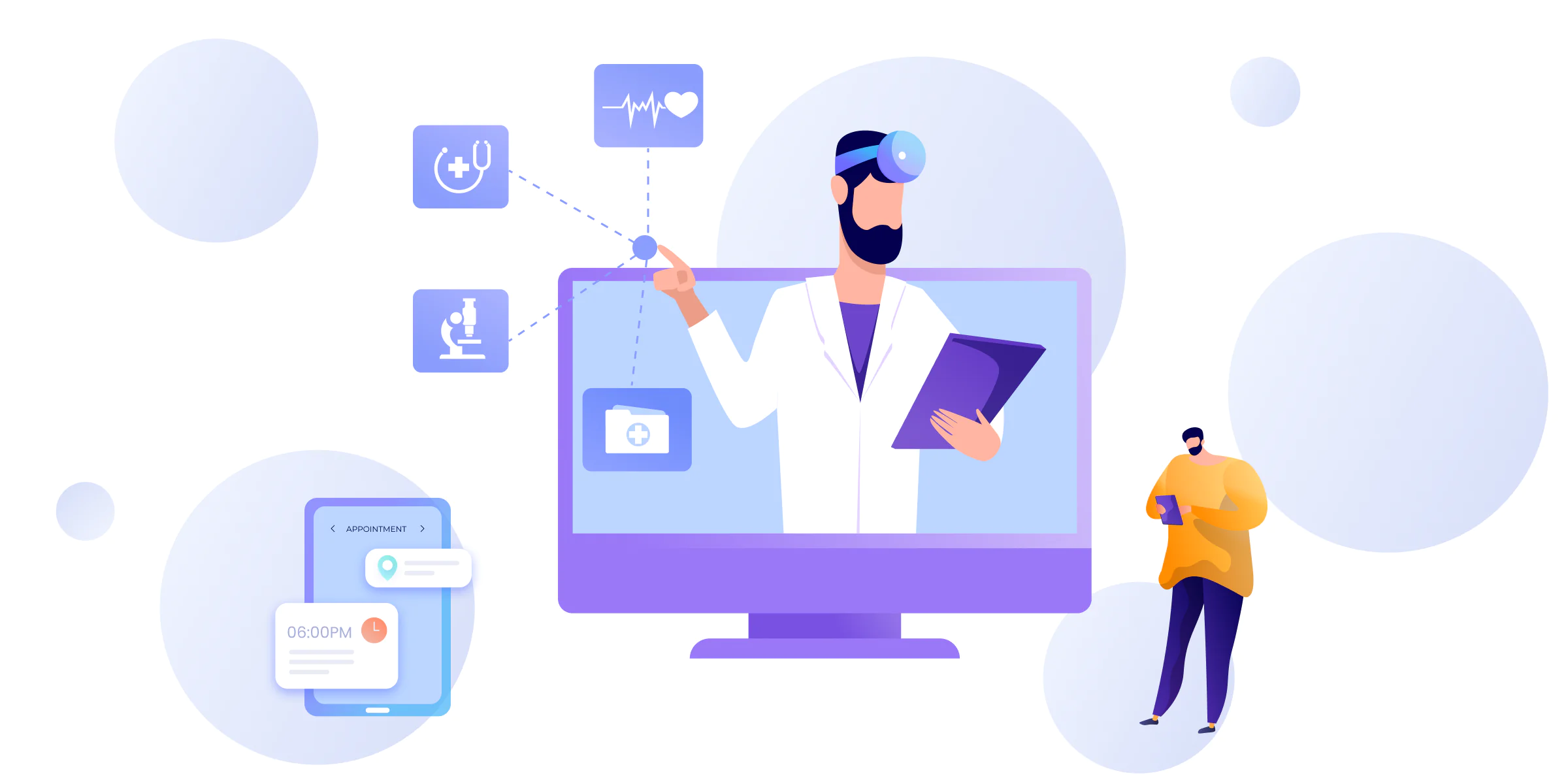
Leading Trends in Tech and Healthcare Software Development
Telemedicine and remote healthcare services
One of the leading areas of healthcare software development is now focused on telemedicine. The main task is to make medical services accessible to people living in remote and rural areas. Moreover, this type of healthcare became a must-have service under COVID restrictions. People can’t effectively access medical facilities during lockdowns, even if they live in the city. So, it’s imperative to provide everyone with access to healthcare professionals.
Of course, video conferencing solutions, like Zoom or Skype, make it possible for patients to communicate with their doctors remotely. However, a skilled healthcare software development company can take this further, making it possible to bring medical aid where there are no high-speed internet connections and multiple medical professionals available to consult online. In addition, implementing AI in healthcare software development allows for automating preliminary consultations. Therefore, more people can get the help they need.
Personal medical devices
Custom medical software development is also used to create various personal devices that help monitor and assess the patient’s physical condition. The majority of such tools available now are wearable trackers that can measure heart rate, oxygen saturation level, blood pressure, and temperature.
However, more devices are in the works. Currently, several companies are working to create tools that will measure all vitals and other important parameters for patients with chronic diseases. In the future, such monitoring devices will also be able to send a request for help to a medical professional. Also, data collected by them can be used for more efficient diagnostics.
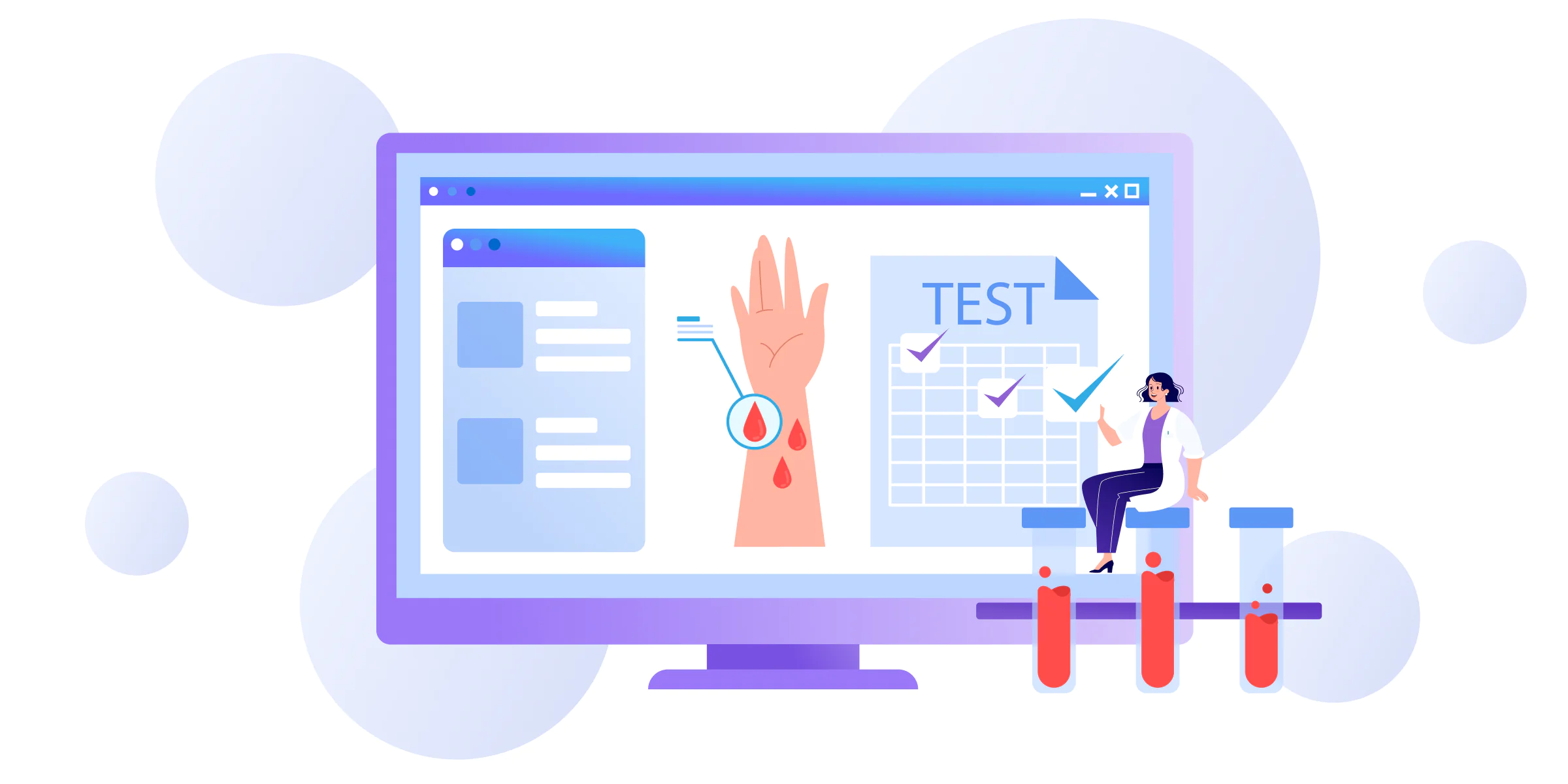
Healthcare software development based on AI
AI’s data processing, analysis, and automation powers are immense. Therefore, AI-based healthcare solutions can have many applications, for example:
- Developing personalized treatment plans based on the analysis of multiple data sources.
- Automation or repetitive, monotonous jobs, like filing and paperwork management, to free up the time of medical personnel.
- Conducting more in-depth diagnostics using technologies like automated image analysis and classification.
- Collecting, processing, and managing medical records. It would also be a great help to organize these records into a global network to ensure a traveling person can get the best medical help no matter where they are.
- Using AI in healthcare software development allows for improving epidemic prevention and management. However, it’s essential to note that such practices as facial recognition, using smart devices to measure body temperature, etc., can be interpreted as widespread surveillance. Therefore, developers and governments need to work closely together to ensure that such measures remain effective without violating the human right to privacy.
Virtual and augmented reality technologies
Combining healthcare software development with VR and AR technologies can produce incredible results. These solutions help with the treatment of severe disorders like PTSD, anxiety, and pain therapy.
There are also some innovative treatments that use this tech in the process of rehabilitation. In particular, they aid in restoring motor skills and even in the treatment of memory loss.
Moreover, surgeons and hospital staff also use various VR solutions to improve their work. For example, ImmersiveTouch and Osso VR tech used for surgical training and education.
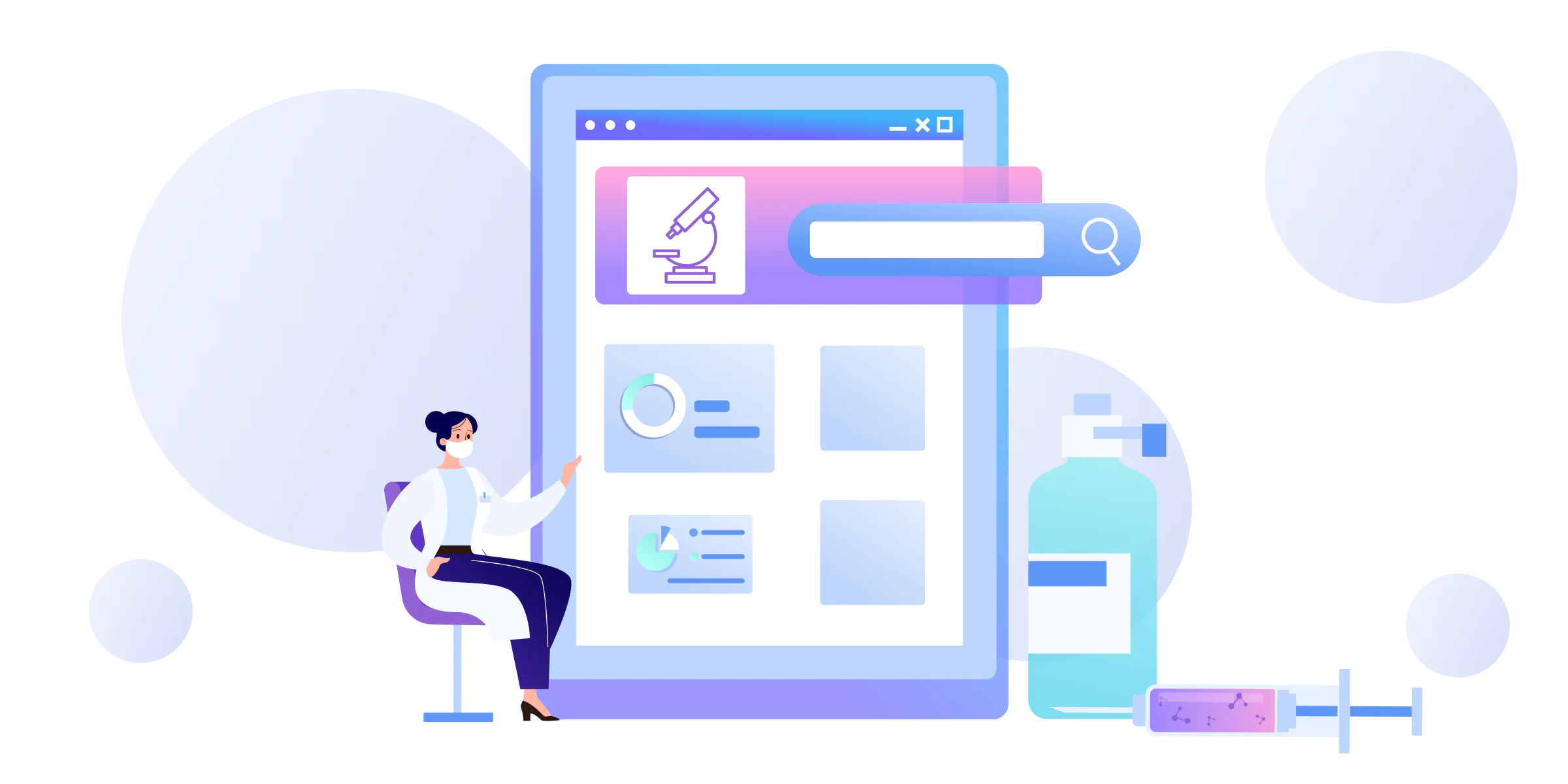
Nanotech and robotics
Technologies that used to exist only on the pages of science fiction novels are reality now. These areas of tech are only starting to develop, but already we can see some incredible robotic prosthetics that change disabled people’s life.
The nanotech industry is slower to develop. However, it has a tremendous potential that researchers recognize. There are already some miniature tools for non-invasive diagnostics and a few basic biosensors.
Meanwhile, robotic healthcare solutions are not restricted to prosthetics only. Today some labs are developing different types of robots that can help disabled people and even become companions for them.
Both nanotech and robotic solutions require extremely careful and innovative healthcare software development. Integrating these tools with AI can truly revolutionize the world as we know it.
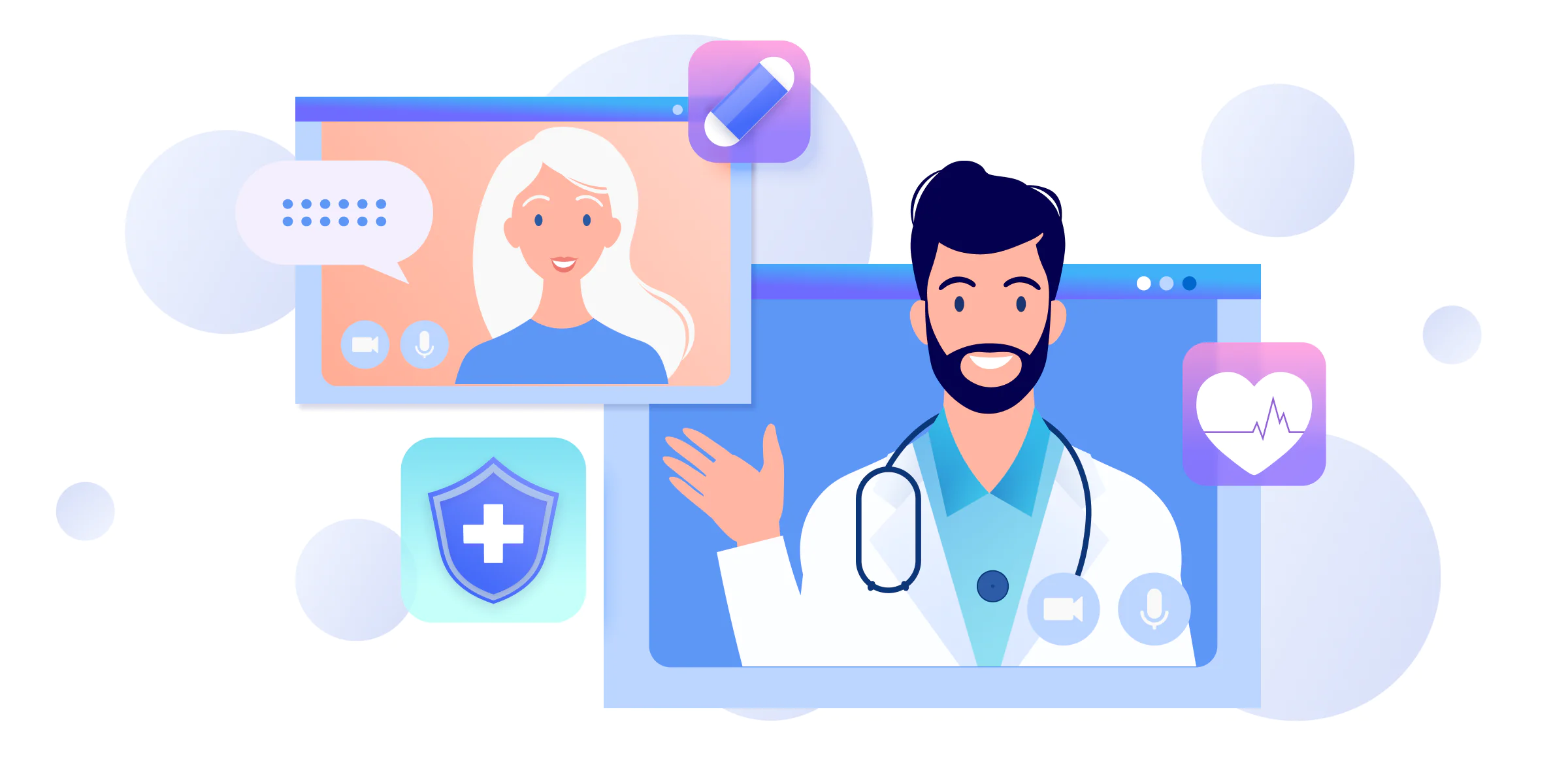
Healthcare Software Development: Industry Growth
You can be sure that the custom medical software development industry will keep developing rapidly. The pandemic crisis brought some extremely dark revelations regarding our capacity to face medical challenges. Therefore, this field will grow further and attract a stream of funding worldwide.
Healthcare software development offers versatile opportunities for investment. So, if you are interested in a project that’s sure to succeed, this is something to consider. Contact our team to discuss your ideas!
